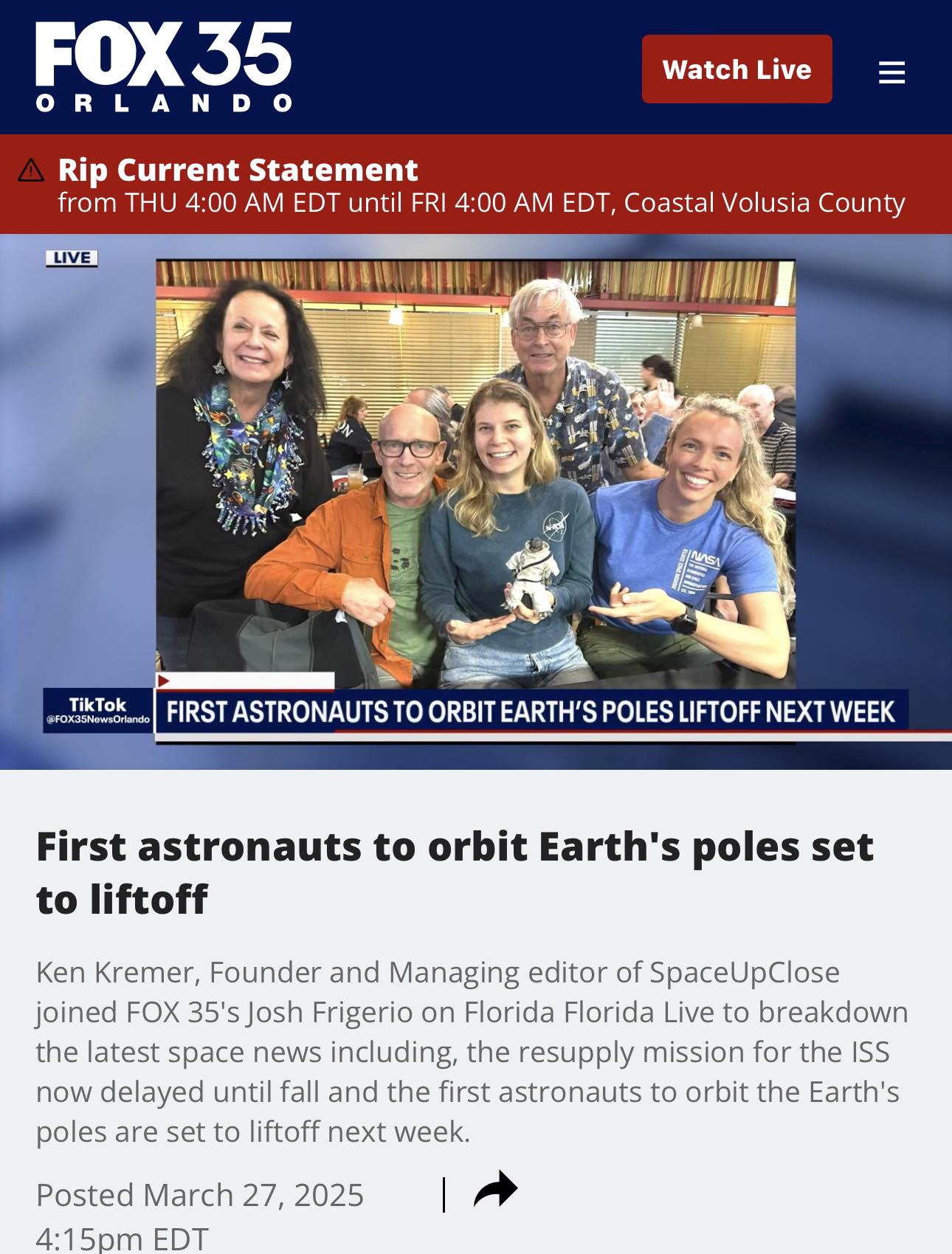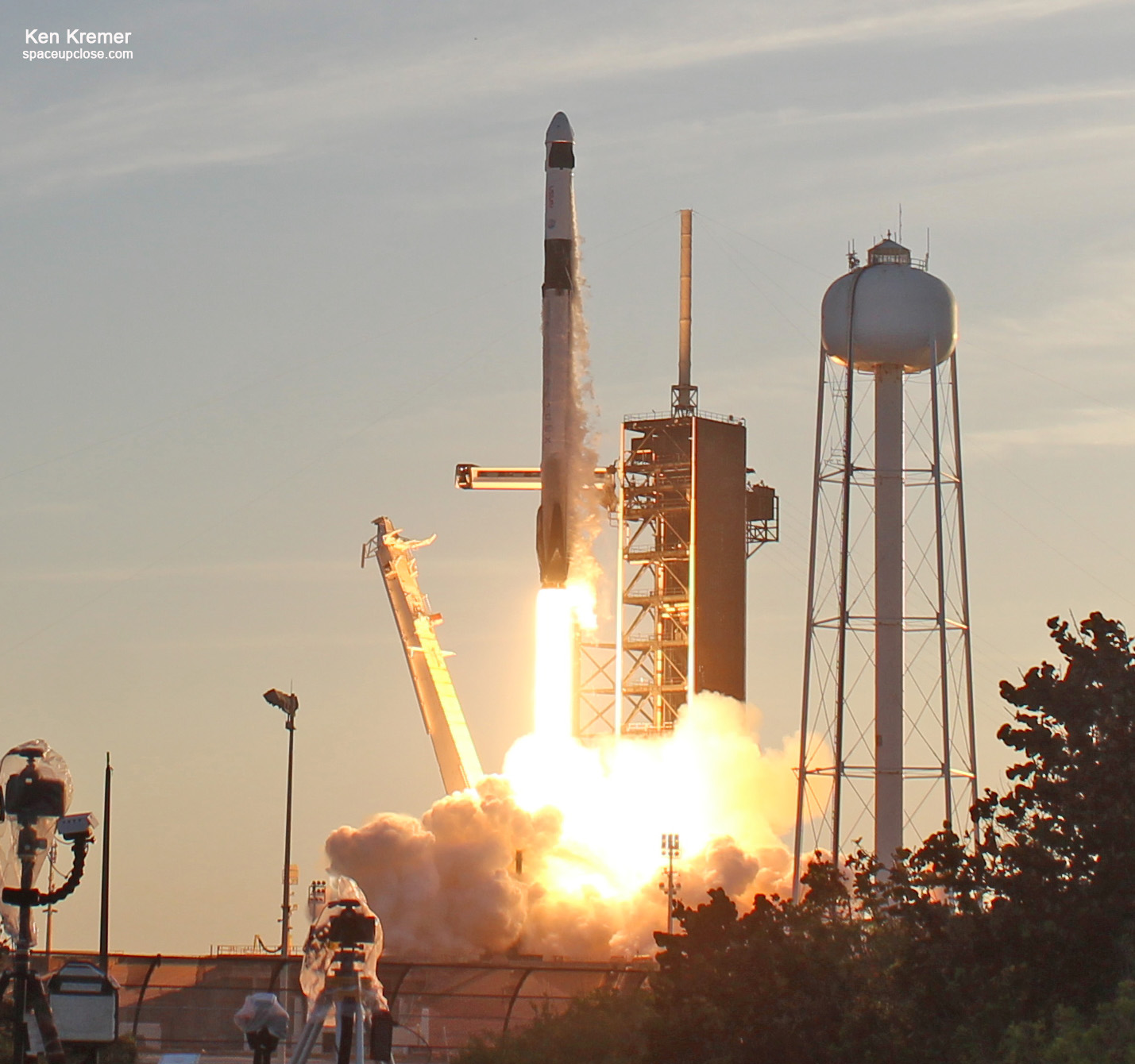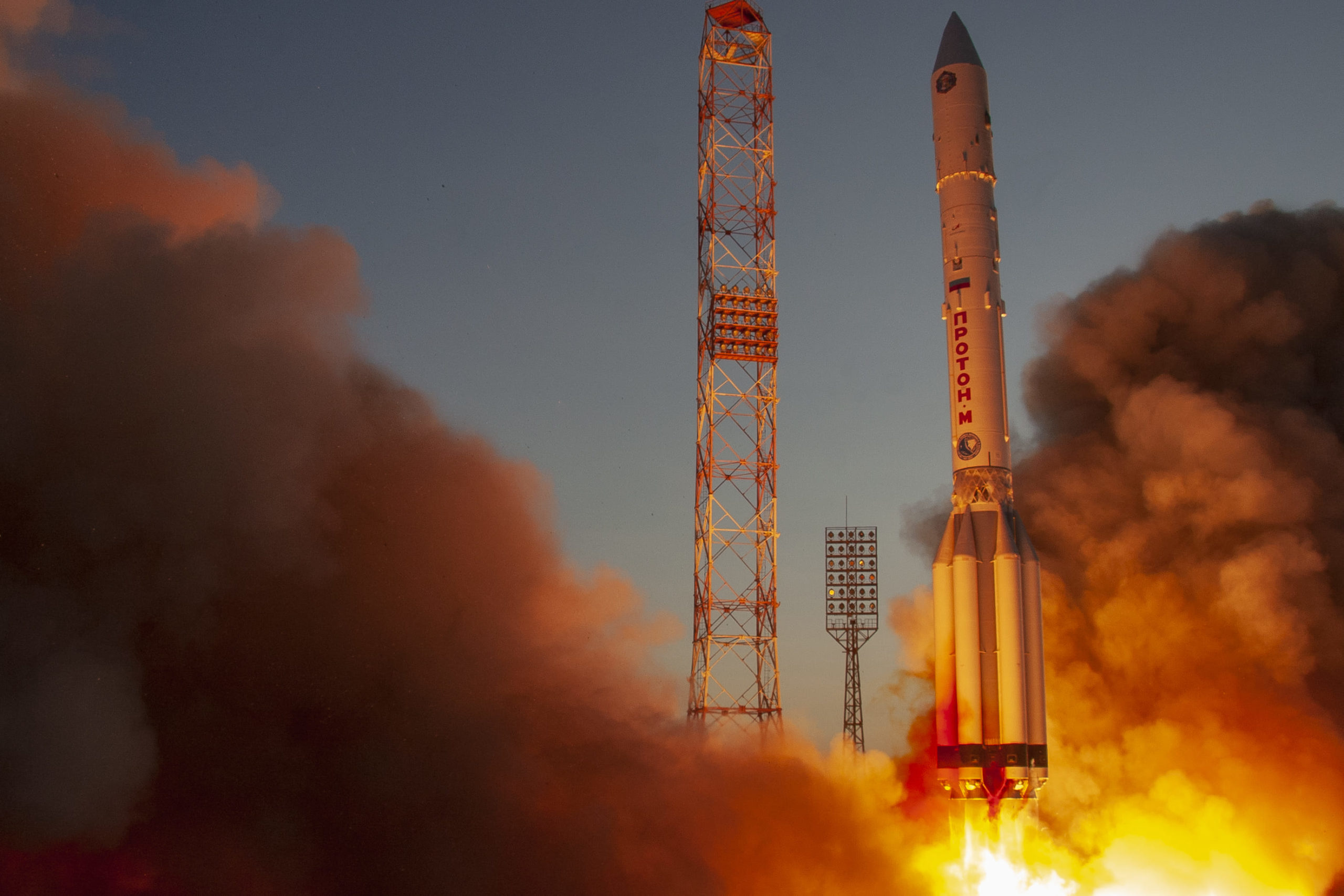
For SpaceUpClose.com & RocketSTEM
CAPE CANAVERAL, FL – It’s been years in the making but Russia finally launched the “Nauka” science module to the International Space Station – marking their biggest addition since the early days of the Earth orbiting outpost and one that will significantly enhance cosmonaut research and capabilities.
The uncrewed Russian Multipurpose Laboratory Module (MLM) “Nauka” successfully and safely achieved orbit following launch at 10:58 a.m. EDT (1458 GMT, 7:58 p.m. Baikonur time) on a Proton-M rocket from Launch Pad 39 at Site 200 of the Baikonur Cosmodrome in Kazakhstan on Wednesday, July 21.
The six liquid fueled first stage engines produced 2.5 million pounds of liftoff thrust.
The 11-meter-long European Robotic Arm (ERA) provided by the European Space Agency (ESA) is also aboard mounted externally for robotic operations.
Cosmonauts will maneuver the ERA from the Russian segment of the ISS.
Nauka, which means science in Russian, will serve as a new science facility, docking port, and spacewalk airlock for future Russian stations operations.
Cosmonauts will maneuver the ERA from the Russian segment of the ISS as the main manipulator on the Russian part of the Space Station. Its seven joints can handle multi-tonne payloads with a large range of motion for assembly tasks.
The long delayed pressurized Nauka module was originally planned for liftoff in 2007 and is a back up vehicle based on the Zarya Functional Cargo Block module
Initially all appeared well with a near perfect delivery of the 43-foot long, 23-ton Nauka module to orbit following separation from the Proton upper stage about nine and a half minutes after liftoff.
“The MLM deployed its solar arrays and navigational antennas as planned,” NASA and Roscosmos reported soon after achieving initial orbit.
Nauka was to execute a series of thruster firings to carry out rendezvous and docking in eight days on Thursday July 29 – just 1 day prior to the NASA Boeing launch of the Starliner unpiloted crew capsule on the OFT-2 test flight to the ISS on July 30.
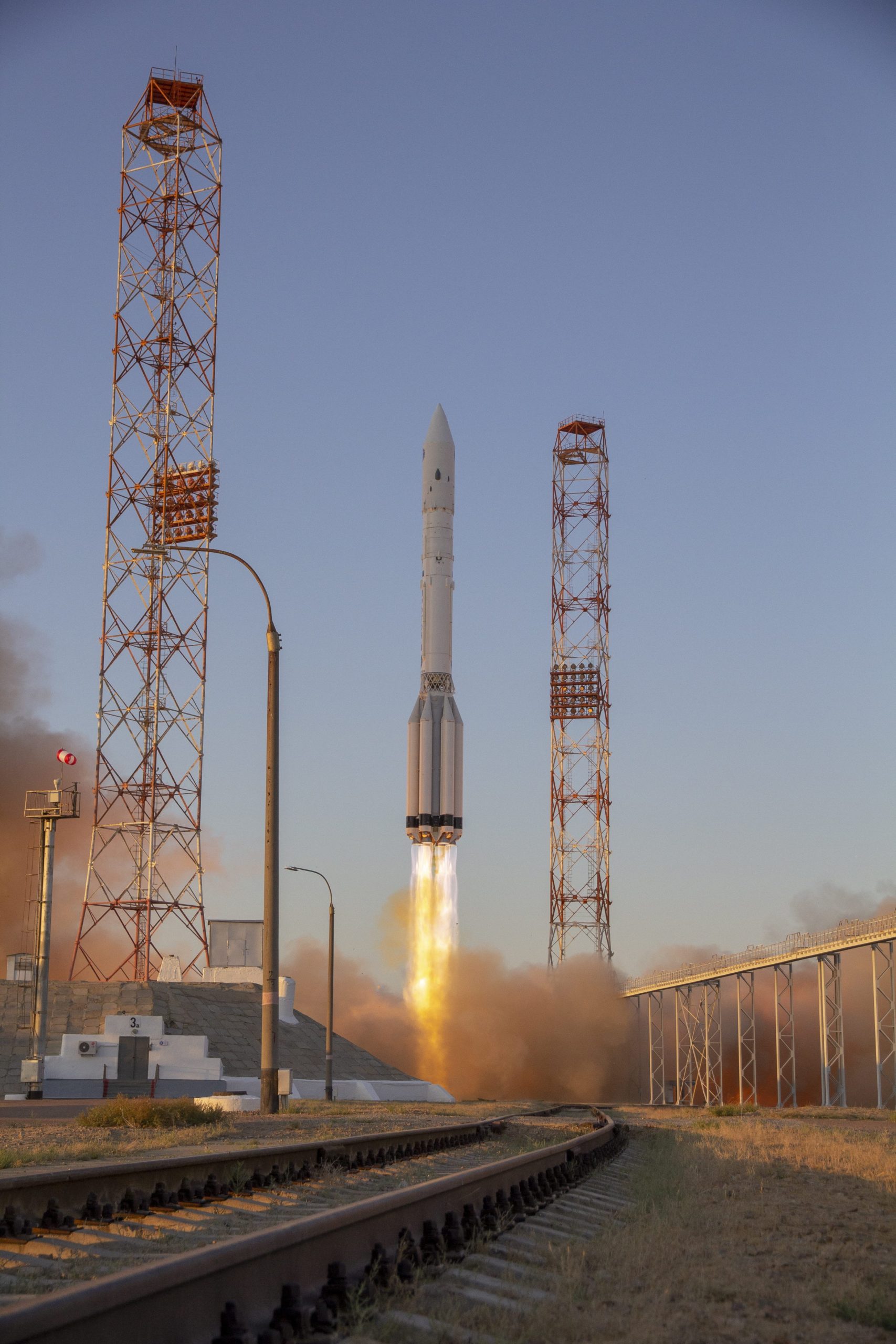
However, a few hours later there were indications of some unspecified technical issues that resulted in a Roscosmos decision to delay the planned undocking of the Pirs docking module to make way at that open port for docking of Nauka.
“After Nauka completes eight days in free-flight to allow Russian flight controllers to evaluate its systems, the 43-foot long, 23-ton module will automatically link up to the port on the Earth-facing side of the Russian segment of the International Space Station, which will be vacated by the departure of Pirs. Docking is scheduled for 9:25 a.m. Thursday, July 29, with live coverage beginning at 8:30 a.m.
The undocking of the Pirs docking compartment module was delayed from Friday to Saturday, July 24, to allow Russian fight controllers more time to assess Nauka’s flight status.
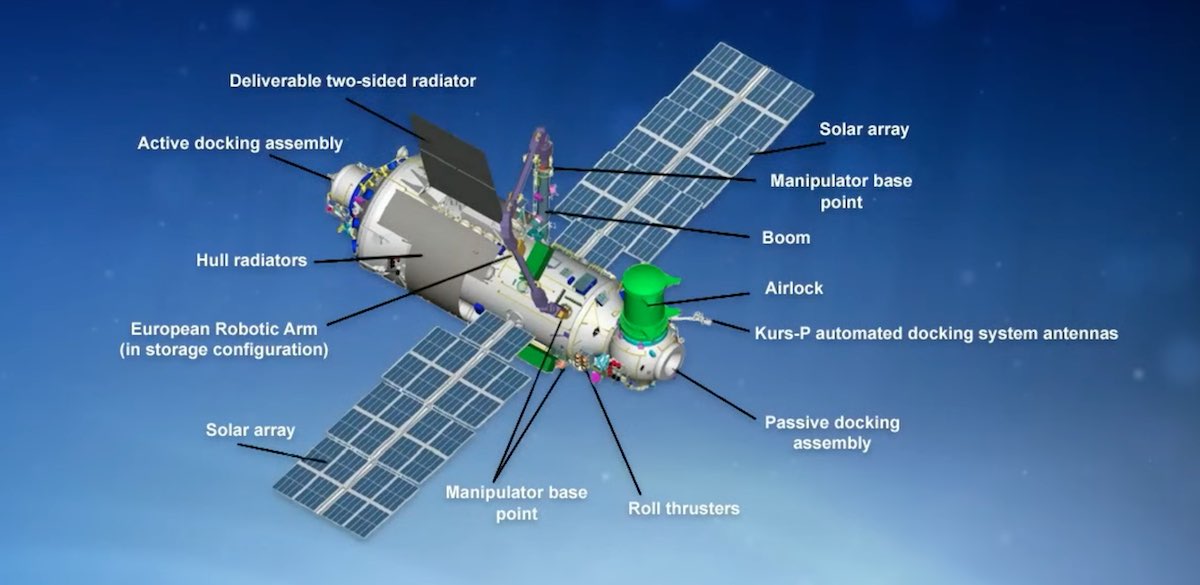
Pirs is currently attached to the Russian Progress 77 cargo ship which will pull it away from the station when the vehicle stack undocks.
Pirs has been part of the space station since September 2001, functioning as a docking port for Russian visiting spacecraft and an airlock for Russian spacewalks.
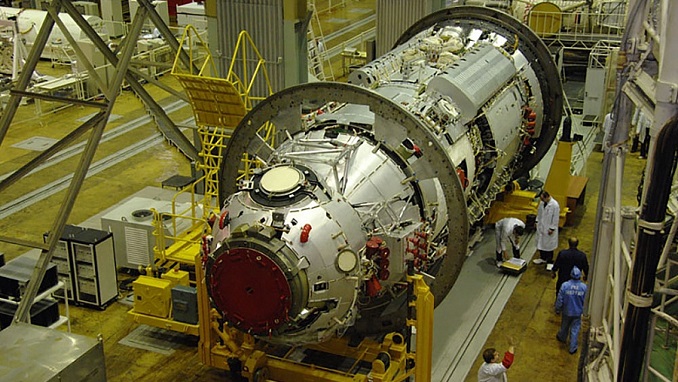
“Russia’s Multipurpose Laboratory Module (MLM) launched on July 21, and to provide more time for Russian flight controllers to check out MLM’s status, the undocking of the Russian Progress 77 and Pirs docking compartment has been postponed until Saturday, July 24, said NASA.
“Progress 77 undocking with the Pirs docking compartment is now scheduled for 8:28 am EDT.
NASA will provide live coverage of Pirs undocking on NASA TV, the agency’s website, and the NASA app which will begin at 8 am EDT.
“After analyzing telemetry received from the #Nauka module, rocket and space industry specialists decided to schedule the #Pirs module deorbit for Saturday, July 24,’ Roscosmos tweeted.
After analyzing telemetry received from the #Nauka module, rocket and space industry specialists decided to schedule the #Pirs module deorbit for Saturday, July 24. https://t.co/5EdoOjAeAs
— РОСКОСМОС (@roscosmos) July 22, 2021
Meanwhile Russian controllers did successfully conduct two thruster firings to adjust the orbit on the way to station docking.
The two burns lasted 17 and 250 seconds respectively and confirmed thruster functionality
The #Nauka Flight Control Group specialists conducted two correction maneuvers of the module: https://t.co/Bq9abGzORj
📍 The first maneuver took place at 15:07 UTC with the module engines burn for 17.23 seconds
📍 The second burn for 250.04 seconds took place at 17:19 UTC pic.twitter.com/Z7akW6Pkgf— РОСКОСМОС (@roscosmos) July 22, 2021
Launch photos from Roscosmos:
Желаете обновить свои обои на рабочем столе? Тогда мы подготовили для вас фотографии пуска ракеты «Протон-М» с лабораторным модулем #Наука.
И еще немного статистики и красивых чисел: сегодняшний пуск стал 111-м для модернизированного варианта носителя «Протон» pic.twitter.com/ZiWf0KwGST
— РОСКОСМОС (@roscosmos) July 21, 2021
Nauka will be the first module added to the station since the Bigelow BEAM expandable module in 2016.
Nauka Launch video from Roscosmos:
Missed today’s #Nauka launch? Here is the video of this historic event!
By the way, this was the 425th launch of the Proton family rockets. pic.twitter.com/48dO8ur3wL
— РОСКОСМОС (@roscosmos) July 21, 2021
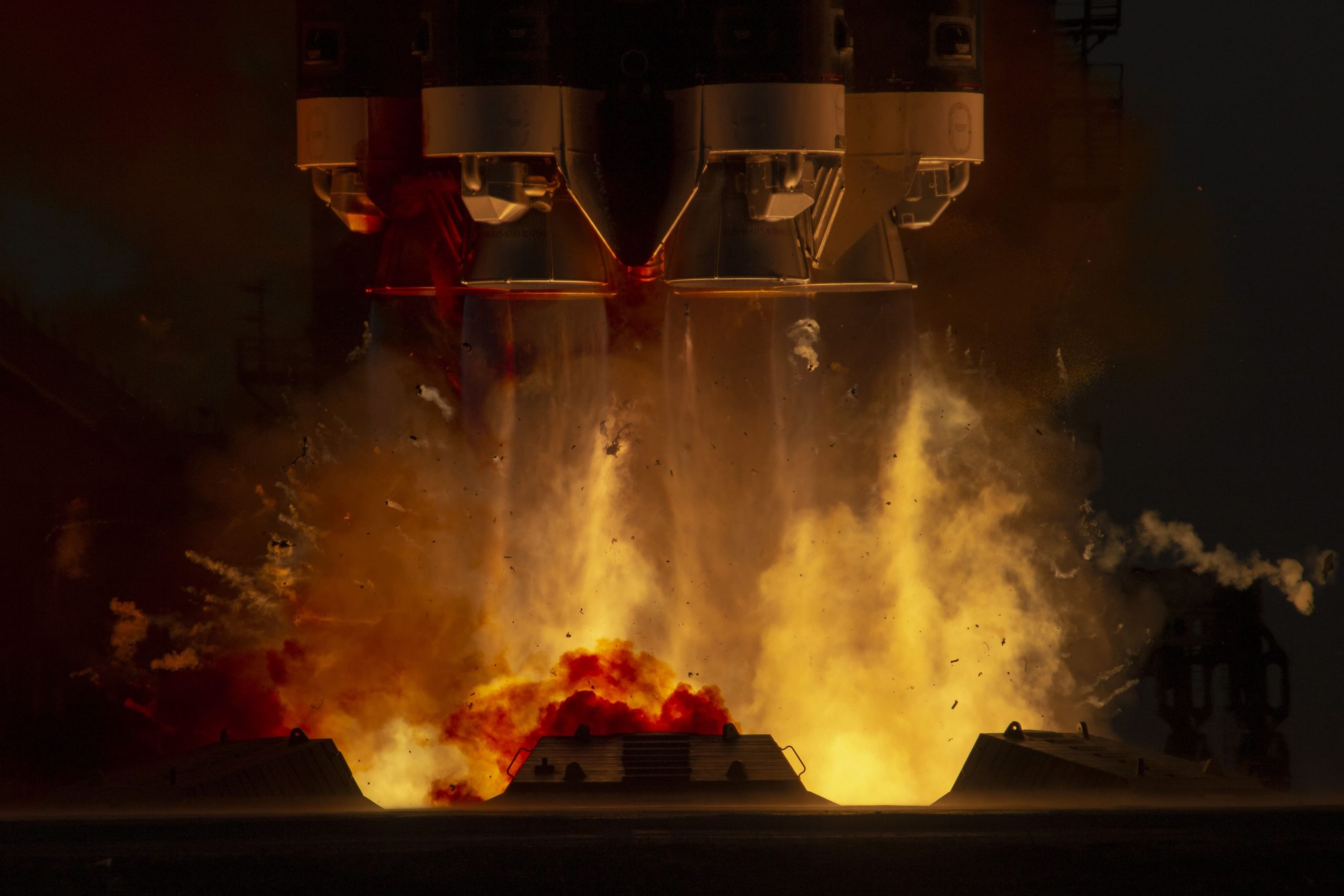
Watch Ken’s continuing reports about Starliner and Commercial Crew and Crew Dragon, Artemis and NASA missions, SLS, Orion, SpaceX, Starlink from onsite for live reporting of upcoming and recent SpaceX and ULA launches including Crew 1 & 2, Demo-2, ISS, X-37B, Solar Orbiter, Mars 2020 Perseverance and Curiosity rovers, NRO spysats and more national security missions and more at the Kennedy Space Center and Cape Canaveral Space Force Station.
Stay tuned here for Ken’s continuing Earth and Planetary science and human spaceflight news: www.kenkremer.com –www.spaceupclose.com – twitter @ken_kremer – email: ken at kenkremer.com
Dr. Kremer is a research scientist and journalist based in the KSC area, active in outreach and interviewed regularly on TV and radio about space topics.
………….
Ken’s photos are for sale and he is available for lectures and outreach events
Please consider supporting Ken’s work by purchasing his photos and/or donating at Patreon:
https://www.patreon.com/kenkremer
x


